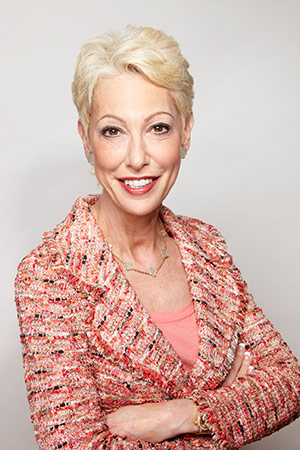Q: I’m a teenager, and I think I might have skin cancer. Is this likely? Will a dermatologist take my concerns seriously?
Deborah S. Sarnoff, MD: For the most part, it’s rare for teens and people in their early 20s to develop skin cancer. While skin cancer can happen to anyone, it’s much more likely to be diagnosed in people over the age of 50. As you age, you accumulate sun exposure and damage, which in turn increases your chance of developing all types of skin cancer. Of course, people who sustain a lot of sun damage in their childhood and teen years can develop skin cancers earlier in life. If you have a history of using indoor tanning devices or spend lots of time outdoors without sun protection, you may have more cause for concern. Some genetic factors may make a person more vulnerable to skin cancer, too.
If a young person comes to me with a spot on their skin that they’re concerned about — a pink bump, for instance — it’s probably something common, such as a pimple or a wart. At The Skin Cancer Foundation, we tell everyone to keep an eye out for anything new, changing or unusual on your skin. Many teens struggle with acne, so you may have ‘new’ things pop up on your skin often. But pimples will heal after a few weeks; skin cancer will not. It’s important to trust your gut, too; if a spot just doesn’t feel right or seems different from other blemishes you’ve had, make an appointment with a dermatologist.
Be honest with the receptionist when scheduling an appointment. Tell them that something on your skin is changing or you think you might have skin cancer. They should put you at the front of the line. If they make you wait four months for an appointment, you should move on and find another doctor.
Finally, even if a dermatologist determines your lesion is benign, it’s OK to ask for a biopsy anyway. If you’re really worried and want peace of mind, it may be worth doing.
About the Expert:
 Deborah S. Sarnoff, MD, is a clinical professor of dermatology in the Ronald O. Perelman Department of Dermatology at NYU School of Medicine. Cofounder and codirector of Cosmetique Dermatology, Laser & Plastic Surgery LLP in Manhattan and Long Island, Dr. Sarnoff is also president of The Skin Cancer Foundation.
Deborah S. Sarnoff, MD, is a clinical professor of dermatology in the Ronald O. Perelman Department of Dermatology at NYU School of Medicine. Cofounder and codirector of Cosmetique Dermatology, Laser & Plastic Surgery LLP in Manhattan and Long Island, Dr. Sarnoff is also president of The Skin Cancer Foundation.




